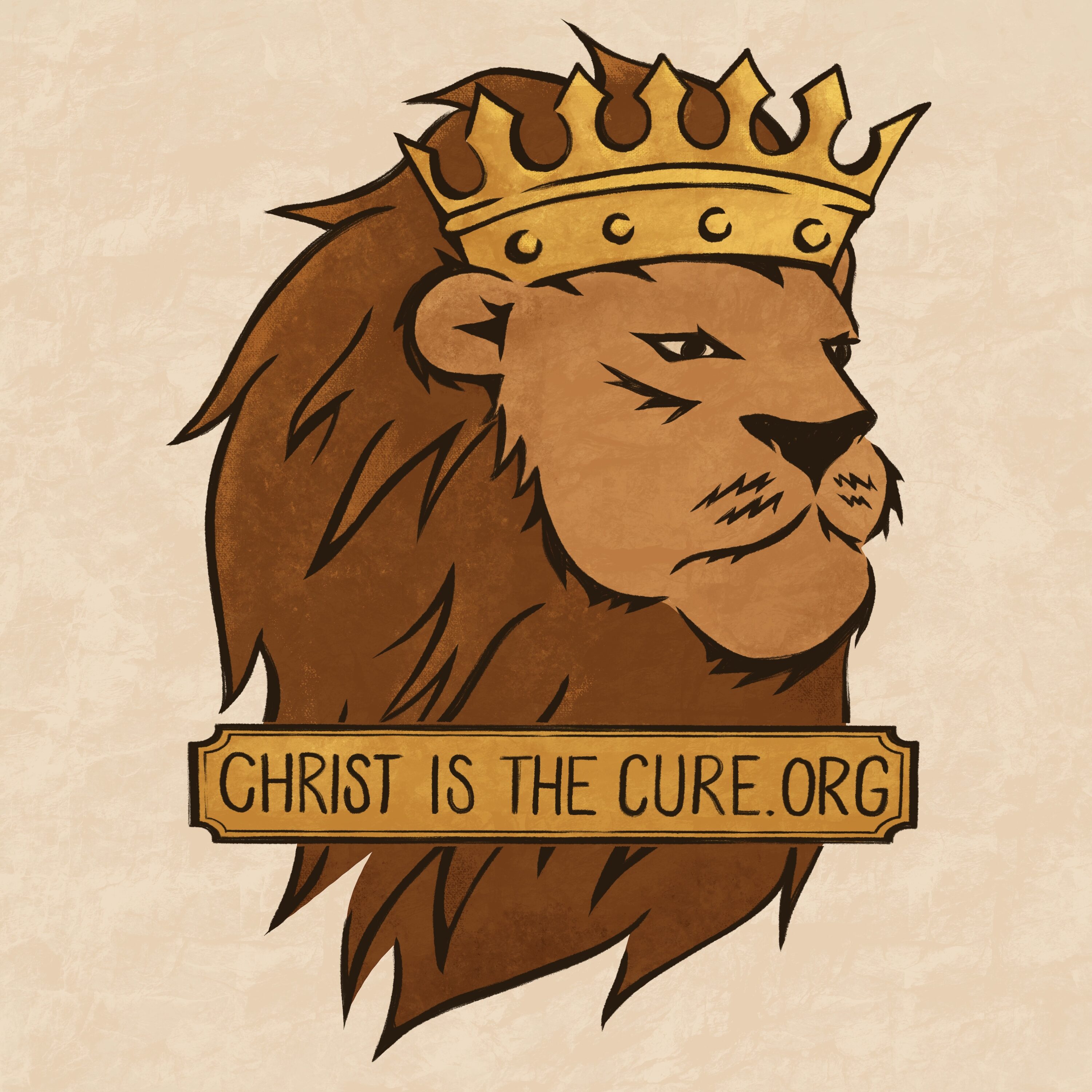I have come to believe that theological maturity is marked by one’s ability to stand firm on conviction while at the same time mining alternative theological traditions with the awareness that there is not only good in various traditions, but also that our own could be wrong. Such a disposition recognizes the fallibility of the mind while humbly submitting the will to divine revelation in order to be precise in theological reflection. The latter is realized in that the individual with this disposition has become less concerned with theological camps and more interested in truth.
Truth does not need to hide behind the champions of one’s bias, but rather it can be better grasped or refined in the flames of theological inquiry. For when one steps out of their zone of theological comfort they are forced to ask questions which improve one’s understanding of another’s theology as well as challenge their own. Men made of straw crumble in these endeavors, allowing for us to meet one of the ultimate ends of the Christian life more fully, that is, the second greatest commandment, “love thy neighbor.” This, in turn, allows for the greatest commandment, love thy God, to be honored more fully in that the Lord has said that knowledge is useless without love (1 Cor. 1-7).
Two points arise from this reflection; first, how is knowledge true if it is built on bricks of misrepresentation and ignorance? Such a knowledge, which sketches caricatures of theologies and thus the individuals who formulate and hold those theologies, is meaningless if not accurate. Is knowledge of any value if it misses the mark and knows so little about those whom it engages? Second, love is nullified by such an empty knowledge, as love demands care for the individual and care for the truth. Both of these, care for individual and truth, in many instances are placed aside while the careless theologian does the work of the flesh, and thus Satan, while wandering in a desolate field of the strawmen he has built. How foolish it is to engage with such creations of the imagination and how sinful it is to hate one’s neighbor through careless misrepresentations of their theological positions.
The question that must be put forth is whether or not this class of theological engagement accomplishes anything other than a misplaced sense of pride and sins against a fellow creature created in the image of God. What value does theological discourse or discussion have if it does not lead to the truth? What value does it have if it doesn’t correct actual error and lead to a proper knowledge of the Lord? Can one accomplish these tasks, leading to truth and to a proper knowledge of God, while addressing positions another does not actually hold?
At the heart of this all, to say that such theological discourse which proceeds from the imagination of the careless theologian is all vanity. Not only that, but the regurgitated misconstrued doctrines of other theological camps are but smoke in weighty, and valuable, theological discussion. It is, then, that we would do well to ponder the theological sources of other traditions with scripture in hand and honesty in intention. Let us hold to the standard of Christ, who is the truth, and be proponents of truth.
Let us seek to understand before offering critique and let us keep in mind that the ultimate end is a love for God. To love God demands fruit of the spirit and the imperatives of texts such as Romans 12, Ephesians 4, Colossians 3, 2 Timothy 2-3 should radically change our hearts in how we approach life. It has been said that the study of primary sources is much too burdensome, and I would counter with saying that careless theological discourse is much easier, less meaningful, and more damaging. It is rare for the Christian life to be one of ease outside the beautiful grace of soteriology and so we labor, but not in vain if truth is exemplified and knowledge of God ascertained. While I have failed to do these things in the past, I look forward, optimistically, to the future.
-Nick Campbell
Apologies for any errors in writing. I will edit the post further if needed. Check out the podcast by going here.



6 Responses
I wholeheartdely agree with every word here, Nick. The modern Reformed camp of the American church, which in turn leads the rest of the world, is up to the neck in misrepresentations of the opposite fields of thought. I think the main source of such situation is a lack of research, and a deadly comfort zone that keeps people in their thought-bubble. Great post, and I also hope to improve in this endeavor while still holding to my convictions.
> Let us seek to understand before offering critique and let us keep in mind that the ultimate end is a love for God.
Great statement. I just a couple of days ago sent a “thank you” email to a Wesleyan theologian who actually pointed me to Reformed theology. Nope – not kidding! Sometimes it seems like people are just waiting to pounce on any minor mis-step or imprecise wording. Let’s show a little charity!
Thanks for this!
That’s fascinating! Why did he point you that way? I’m really curious!
Well, he did so somewhat inadvertently. In his post called “Triumph of Arminianism (and its dangers)” (found at: http://www.tyler.net/triddorus/triumph_of_arminianism.html), there’s a section called “The Dangers of Arminianism”. When I was first exploring all of this, this particular section stuck with me. I reasoned “Well, if being *close* to the ‘dividing line’ was where he encouraged people to stay, there *must* be some virtue on the other side (Calvinism) of that line”.
As I’ve re-read the article, he definitely mis-characterizes what most of us would call the Doctrines of Grace. Regardless, it was the reference cited above that started me on my journey to see exactly what Reformed Soteriology was all about. It took me several years to discover that I had, indeed, crossed over!
P.S. One of the people who discipled me is the son of the late, great Norman Geisler. I’ve tried several times to get through “Chosen But Free” but I found so many logical errors and lacking strong scriptural exegesis that I’ve never made it. Maybe some day. I’ll probably do so with a copy of “The Potter’s Freedom” in hand when I do so!
“I have come to believe that theological maturity is marked by one’s ability to stand firm on conviction while at the same time mining alternative theological traditions with the awareness that there is not only good in various traditions, but also that our own could be wrong.”
It is true that certain theological positions once held firm can and perhaps should be subject to change. Maybe, a position was taken without a well-orbed study of Scripture, or over years of study one overcame the presuppositions which he or she brought to theology. For instance, I was just speaking with a person who had switched from Dispensational Eschatology to Amillennial Eschatology. Certain aspects of theology are less clear than others, a bit mysterious, thus allowing a bit more wiggle room.
However, we must be willing to admit that not all theological positions are equally valid. Some positions, even in areas where there is a bit more mystery, do a better job of rightly dividing the scripture.
Truth, by nature, is exclusive. There have been, and still are many theological positions which are simply false. Preaching through 1 John this winter, we have noted that John often uses doctrine to divide. He does so to expose unbelievers from believers. He warned them of the liars, antichrists, and deceivers that were trying to teach them theological positions that were simply false.
I say that to also mention that John tells them over and over to abide in the theology which they first received. Such abiding is a remaining in, or staying put in very precise doctrine that dealt with right belief and behavior of a Christian. Certain theological positions are firmly established and set for us to rest in, and not be swayed or tempted to change what we believe.
Long story short, I would tend to say that many theological positions have some good that can be mined, but I believe that I would also leave room for the possibility that some theological positions and traditions do not have any good no matter how hard and deep you mined.
I would also say that within the large umbrella of theology there are certain positions that we to need stand more firm on than others. Some we hold loosely, others we should grip tightly with both hands clasped.
In case I am coming across to strongly, let me be the first to say that my theology has not always been the same in every area. I have grown greatly from studying and sometimes agreeing with those of whom I once disagreed.
Thanks for your thoughtful article Nick. Keep up the good work.
Trey Talley, author of: The Missing Gospel of Modern Christianity: Know, believe, and share the true message of salvation.
Absolutely agree! Some doctrines are categorically more significant than others, without a doubt. I suppose the perspective I was namely bringing to the table, with my first paragraph being the steps into the pool, was that humility is required for honest theological inquiry. If something is true, as you noted truth is exclusive, than it can withstand scrutiny.
I would differ on you in regards to “no good no matter how hard and deep you mined.” In my experience it seems as if many theological positions, even if erroneous, have an emphasis that they are built upon. I have also found that such emphasis can be found lacking in other traditions. Though, in many situations “practices” are more redeemable than doctrine such as a Jehovah’s Witness and evangelism. Their practice is admirable, but the doctrine and motivations are rotten.
I don’t think you came off strongly and I appreciate the time you took here. I agree that doctrine divides, though I would say that theological categories demands that division only occurs when necessary, namely in regards to soteriology and Christology. Which, I think you laid that out in your book extremely well 🙂